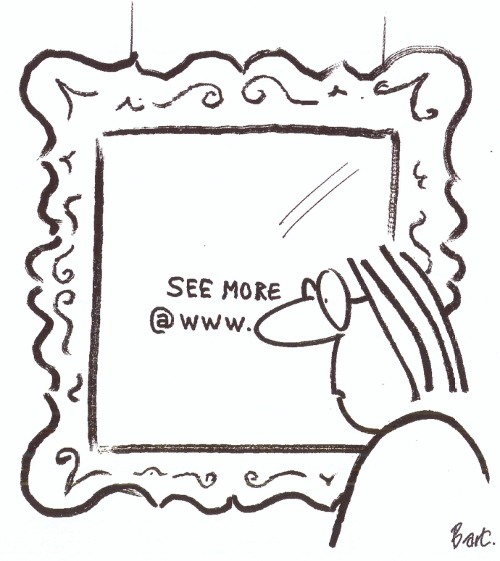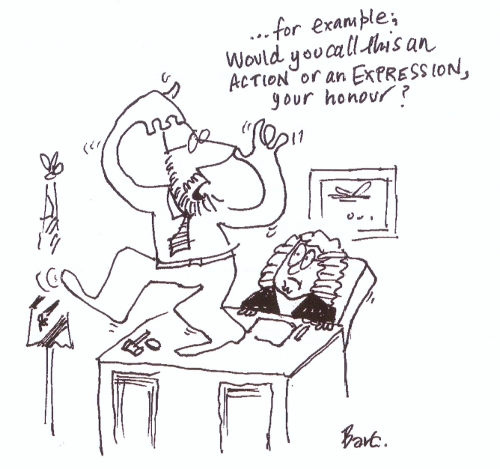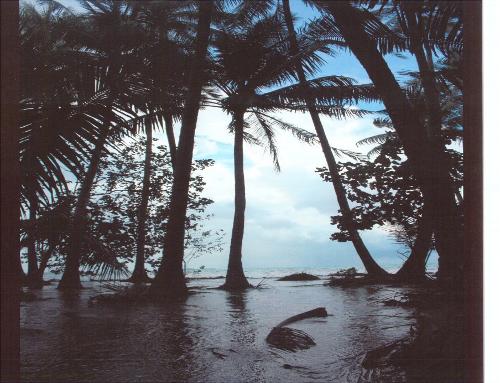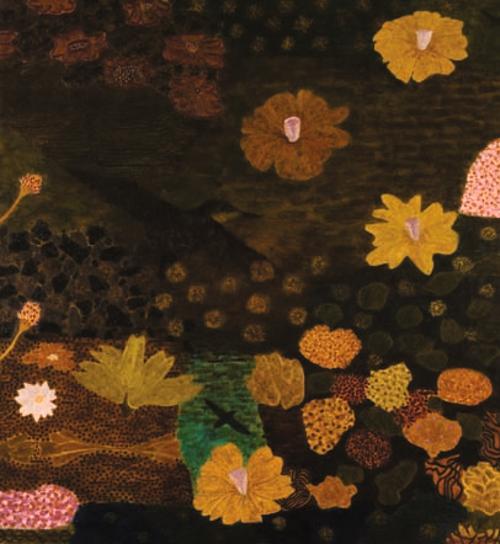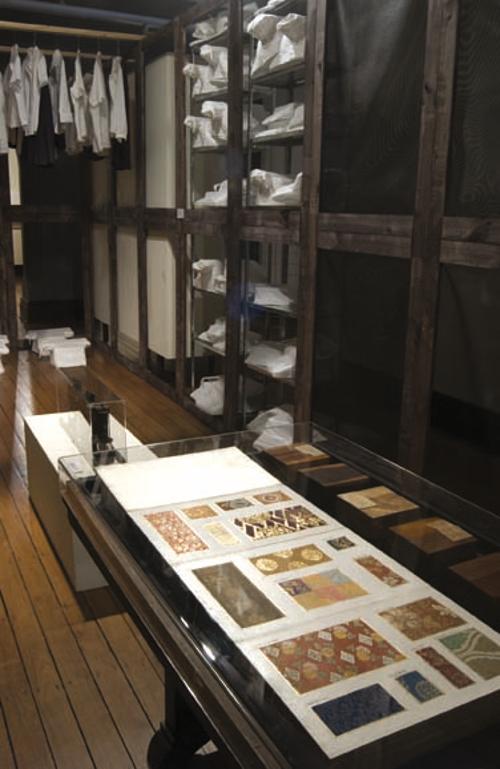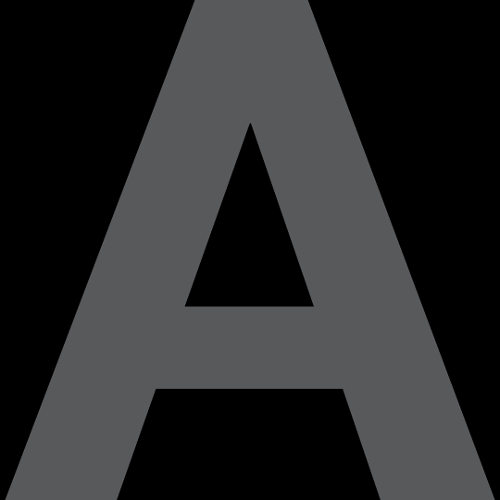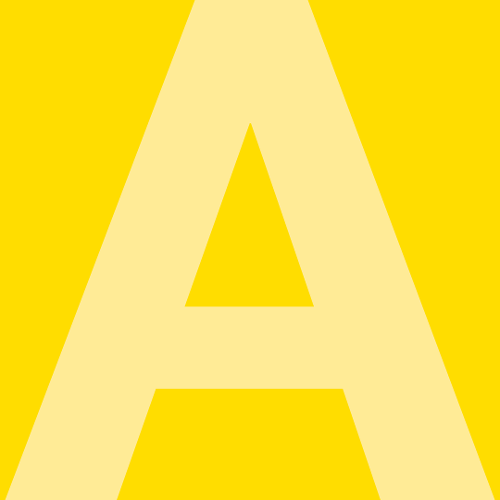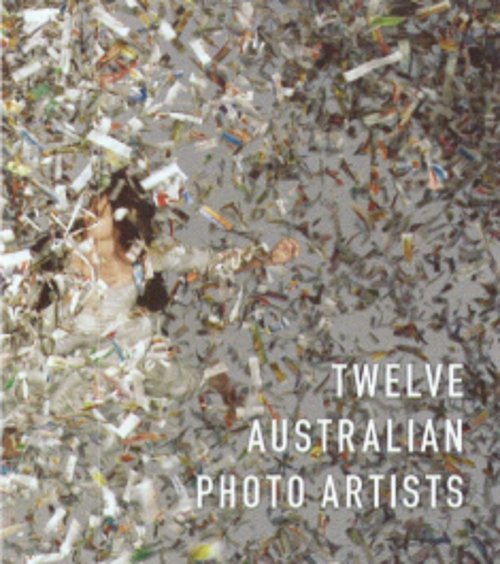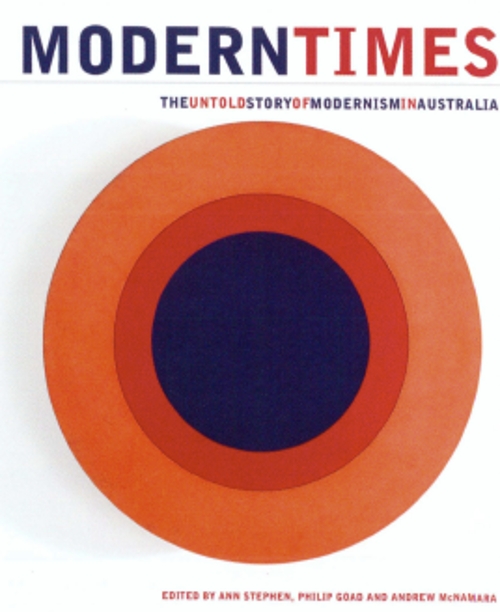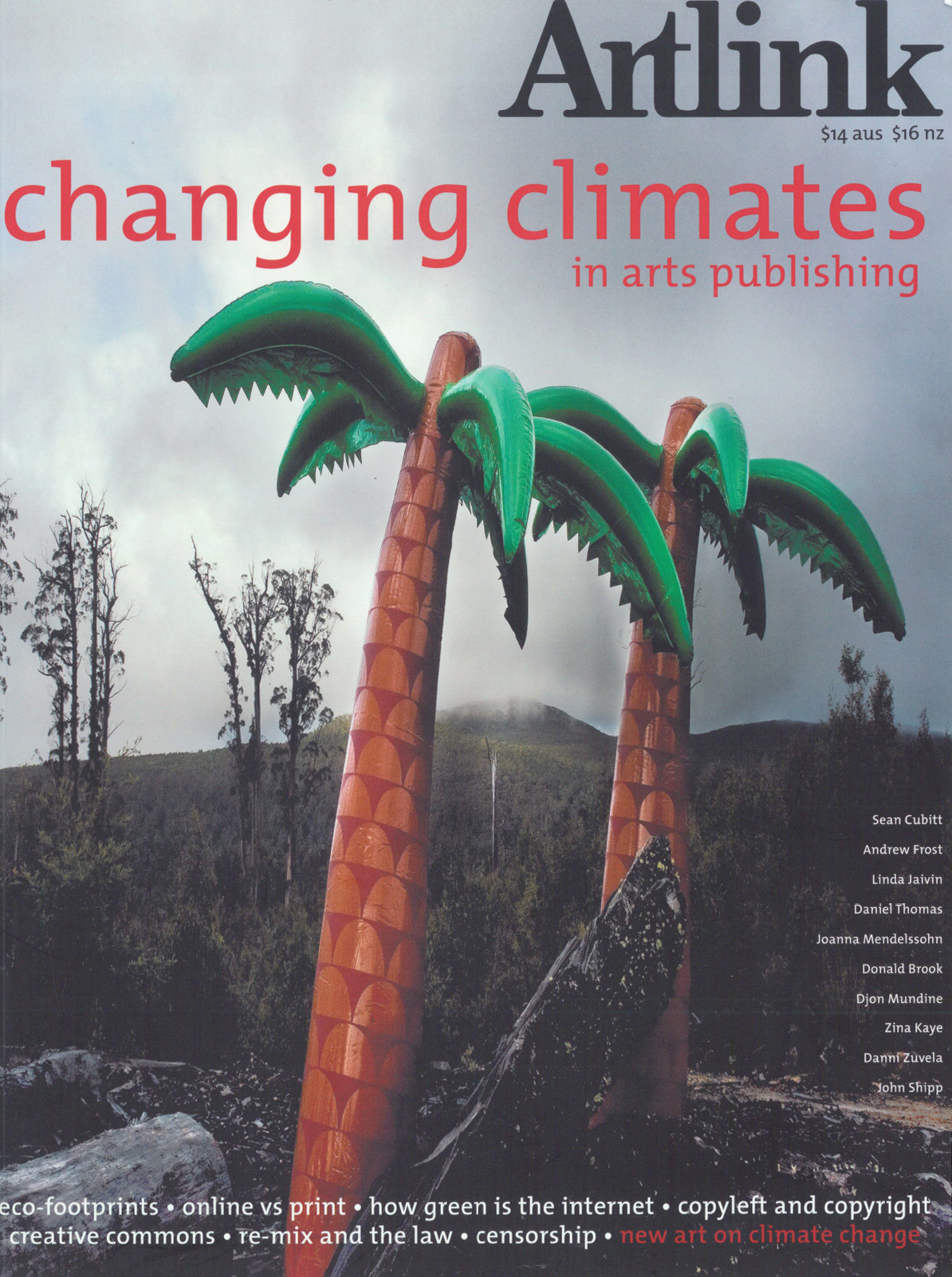
Changing Climates in Arts Publishing
Issue 29:4 | December 2009
In a world where newspapers and journals are being replaced by online versions, and traditional copyright is being challenged, many new scenarios present themselves. Artists and publishers are being asked to make choices and address questions that are environmental, technical, aesthetic, legal and financial all at the same time. * carbon emissions from print/online content * should all content be free * effect of re-mix and Creative Commons on creators' rights * search engine uses of arts content * catalogues and zine publishing * art biography as online data bases emerge. Powerful climate change imagery, new work by emerging and established Australian artists, flows through the pages. Plus bonus review section: 17 recent books & catalogues. Based on the Changing Climates in Arts Publishing forums organised by Artlink in Adelaide and Sydney in 2009 More on the forums including programs and vodcast. Discussions of a lively team of experts, writers, artists, copyright lawyers, arts publishers, activists: Zina Kaye, Elliott Bledsoe, Linda Jaivin, Daniel Thomas, Tess Allas, Joanna Mendelssohn, Sean Cubitt, Tamara Winikoff, Andrew Frost, Donald Brook, Lisa Havilah, Djon Mundine, Zoe Rodriguez, Bill Morrow.
In this issue




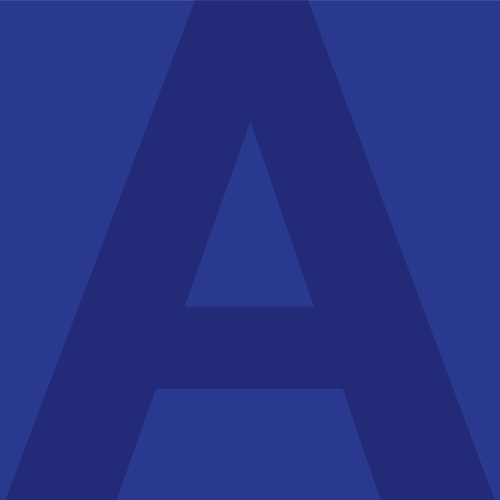
Director of the Media and Communications Program at the University of Melbourne Professor Sean Cubitt asks: what is the weight of the internet, is it green, clean and immaterial with no environmental costs? The answer is a scary and resounding no.
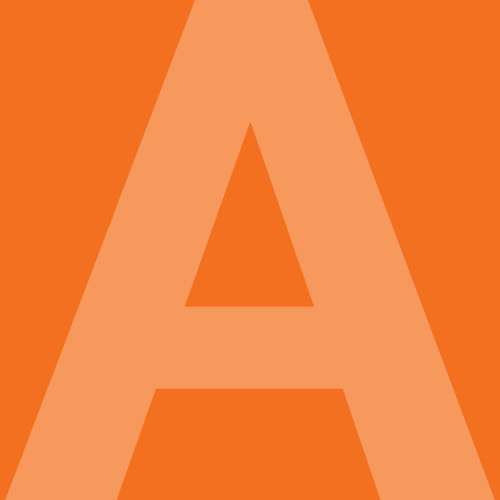
Freelance writer, author of True Green @ Work and editor Tim Wallace discusses the conflict between new technologies making everything available for free and writers and content creators needing to be paid. He quotes from on a book by Kevin Kelly called New Rules for the New Economy: 10 Radical Strategies for a Connected World: 'The only factor becoming scarce in a world of abundance is human attention.'

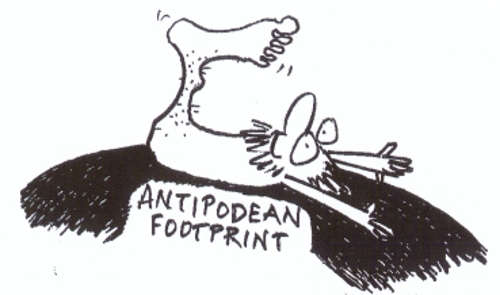
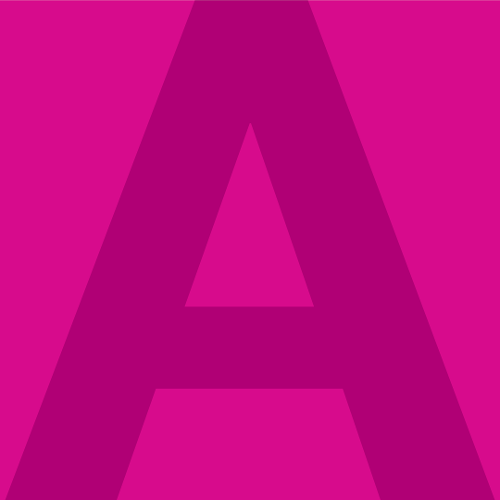
Copyright lawyer Zoe Rodriguez discusses the implications of digitising works of literature and the contentious Google Book Settlement of 2009.



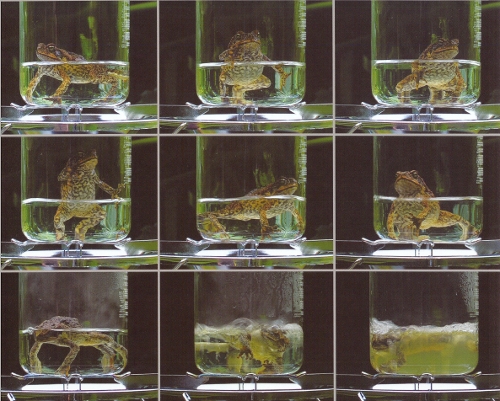
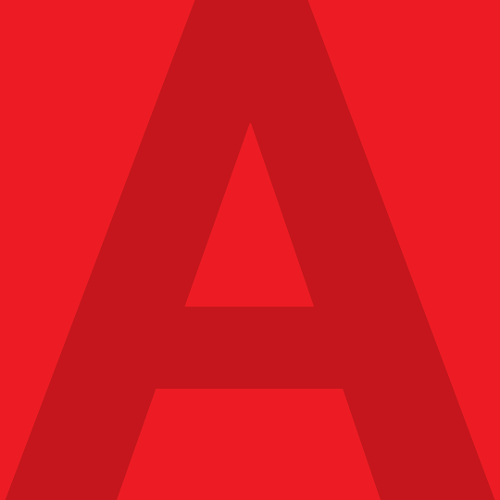
Novelist and sinologist Linda Jaivin rejects the excess writing and publishing that the internet affords every person with a keyboard and compares it to Milan Kundera's definition of graphomania(an obsession with writing books). She would rather have fewer readers than more scanners believing that a 'long form' like a novel or book-length non-fiction needs slow writing and carefully crafted prose.
